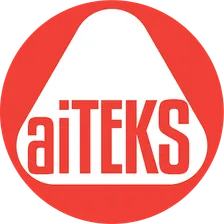Sympla-Tickets-Brazil
Pricing
$30.00/month + usage
Go to Apify Store
Sympla Event Scraper
Overview
This code is a web scraper designed to extract event data from the Sympla event platform (https://www.sympla.com.br). It's built to be used within the Apify platform, which allows for scheduled or on-demand execution of web scraping tasks. The scraper gathers event information, including details like event name, date, location, organizer, and ticket information, for a specified city.
Features
- Event Listing: Fetches lists of events for a given city, with optional filtering by state and date range.
- Date Range Filtering: Supports filtering events by a start and end date.
- Event Details: Optionally fetches detailed information for each event, including descriptions, venue details, and category.
- Ticket Information: Retrieves ticket details for events, such as prices, availability, and sale dates.
- Pagination: Handles pagination of event listings to retrieve events from multiple pages.
- Error Handling: Includes error handling for API requests and data processing.
- Axios for HTTP Requests: Uses Axios for making HTTP requests.
- Apify Integration: Designed to run on the Apify platform.
- Session Management: (Partial) Attempts to use an Axios session to handle cookie-based access to event details and ticket information.
- Input Schema: Defines the expected input parameters for the scraper.
How it Works
The scraper operates in the following general steps:
- Initialization: The script initializes the Apify actor and retrieves input parameters, including the target city, state, date range, and other options.
- Event List Fetching:
- The
fetchEventsByCityfunction is used to retrieve a list of events from Sympla's API. This function constructs a URL with the necessary parameters, including the city, state, and date. It handles pagination to get all events. - The
dparameter is always included in the request. If a date range is provided,dincludes the start and end dates (YYYY-MM-DD,YYYY-MM-DD). If no date range is provided,ddefaults to today's date (YYYY-MM-DD).
- The
- Event Details and Ticket Fetching (Optional):
- If the
fetch_detailsinput parameter is set totrue, the scraper fetches detailed information for each event. - It uses
fetchEventPageDetailsto get event descriptions, venue information, etc. - It uses
fetchEventTicketsto get ticket information. - A session using Axios is initialized to try to handle cookie requirements for fetching details. If session initialization fails, it falls back to non-session requests.
- If the
- Data Formatting:
- The
formatEventDatafunction is used to structure the event data into a consistent format. - The
enhanceEventWithPageDetailsandenhanceEventWithTicketsOnlyfunctions add the detailed information and ticket data to the formatted event objects.
- The
- Data Output:
- The scraper pushes the formatted event data to the Apify dataset, making it available for download or further processing.
Input Parameters
The scraper accepts the following input parameters:


